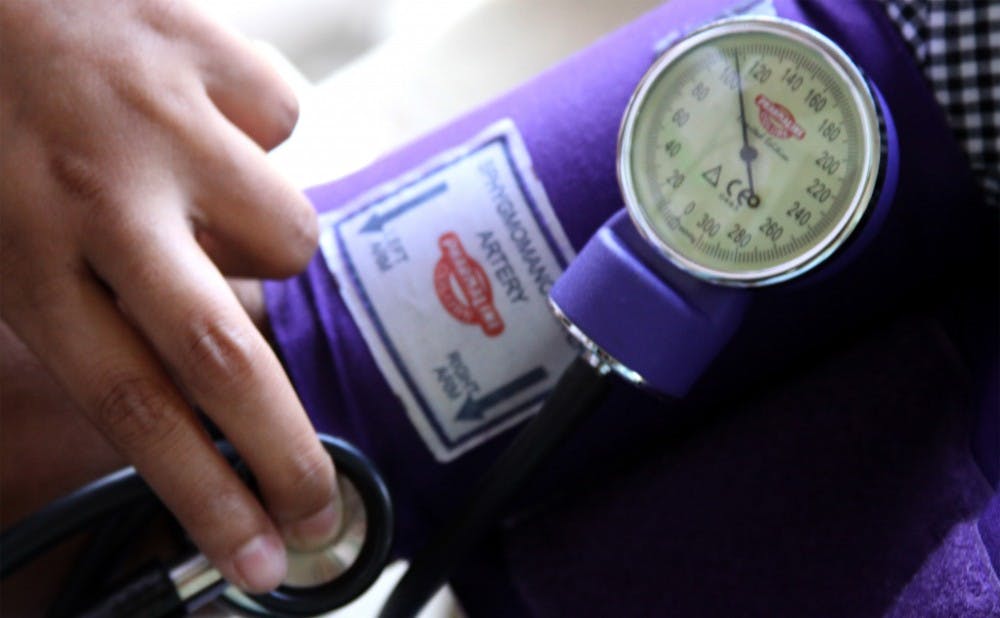Duke researchers are working toward creating better drugs for high blood pressure.
Scientists at Duke are collaborating with other universities to understand cell surface receptors and how they interact with medication designed to change them. Since high blood pressure affects one in three adult Americans and increases the risk of heart disease for those people, this research could be the pathway to saving many lives.
Specifically, they are looking at the hormone angiotensin II and how it binds to its receptor. The angiotensin receptor is targeted by blood pressure medication, but the previous notion that such receptors can only either be on or off may be incorrect.
“The protein that we’re studying is targeted by certain existing blood pressure medication. These are already marketed, but there's been a lot of recent recall of certain blood pressure medications,” said Laura Wingler, lead author of the study and a postdoctoral researcher in the Lefkowitz laboratory at Duke. “Those drugs turn this protein off completely. But the angiotensin II receptor, along with raising blood pressure, also does other things.”
Current blood pressure drugs include angiotensin II receptor blockers, which don’t allow angiotensin to bind at all, stopping the blood vessels from constricting.
“These papers are trying to understand what molecules can mix and match what receptors do, and why,” Wingler said.
Angiotensin is a G protein-coupled receptor, one of many in the human body which, together, control everything from heart functions to neurological transmitters. Robert Leftkowitz, James B. Duke professor of medicine, shared the 2012 Nobel Prize in Chemistry for his work on G protein-coupled receptors.
“These are proteins that a lot of different hormones in your body will turn on or off to achieve desired effects,” Wingler said. “Many medications use this. Antidepressants, opioids—they all target proteins that are very similar in structure. So we can use the same ideas to separate positive therapeutic benefits of drugs from the side effects that they cause.”
By preventing angiotensin II from binding to its receptor, these medications can treat high blood pressure. However, in doing so, the drugs also block angiotensin from its beneficial services to the heart, such as increasing the organ’s strength and performance.
“Ideally, we would have drugs that lower blood pressure but don’t turn off all the effects of the receptor,” Wingler said.
The researchers from Duke, Stanford, UCLA and Harvard used a technique called double electron-electron resonance spectroscopy in order to map the shape of the receptor and how that changed when it interacted with different types of hormones and drugs.
The next step is to continue working with colleagues from other universities to learn how to “rationally manufacture drugs” that will allow the angiotensin to continue servicing the heart without increasing blood pressure, then eventually get them FDA-approved and marketed to patients.
However, “drug development is beyond what a small academic lab can do,” Wingler explained. She said that she considers their work “good first steps” in a project that will need other resources to complete.
The findings were published in the scientific journal Cell this month.
Get The Chronicle straight to your inbox
Signup for our weekly newsletter. Cancel at any time.

Maria Morrison is a Trinity senior and a digital strategy director for The Chronicle's 117th volume. She was previously managing editor for Volume 116.

